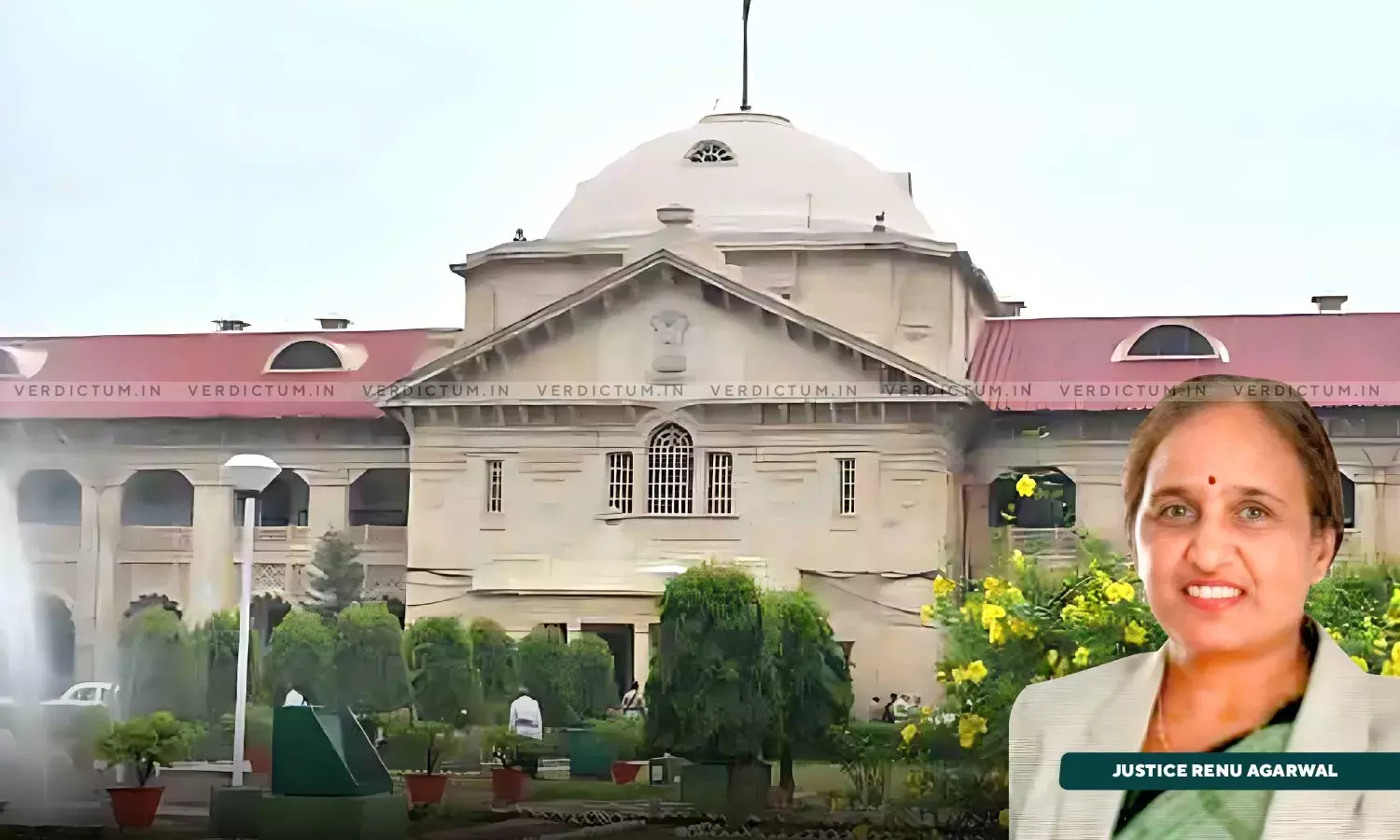Legally Wedded Wife Cannot Go Outside Marriage: Allahabad HC Cites Shariat Law To Deny Protection To Muslim-Hindu Live-In Couple

The Allahabad High Court while denying protection to Muslim woman and Hindu man being in live-in relationship said that, the legally wedded wife cannot go outside marriage.
The Court was dealing with a petition filed by the live-in partners seeking protection from the family and relatives of the Muslim woman.
A Single Bench of Justice Renu Agarwal observed, “From the factual matrix of the case it is apparent that petitioner no.1 is legally wedded wife petitioner no.2. She has not obtained any decree of divorce from the competent authority. She is living with petitioner no.2 in contravention of the provisions of Muslim Law(Shariat), wherein legally wedded wife can not go out side marriage and this act of Muslim women is defined as Zina and Haram. If we go to the criminality of the act of petitioner no.1 she may be prosecuted for the offence under section 494 and 495 IPC, as such relationship is not covered within the phrase of live-in-relationship or relationship in the nature of marriage.”
Advocate Fareed Ahmad represented the petitioners while Additional Chief Standing Counsel Ashwani Kumar Tripathi represented the respondents.
Facts of the Case -
The petition was filed seeking issuance of a writ order or direction in the nature of mandamus directing the respondents (family and relatives) not to interfere in the peaceful life of the petitioners/live-in couple and further not to harass them in any manner. They also sought a writ order or direction to provide security for the safety of the couple. The Muslim woman was aged 44 years and the Hindu man was aged more than 36 years. The woman had earlier married to a Muslim man who solemnized his second marriage with another Muslim woman.
Thereafter, the woman wilfully decided to leave her matrimonial house and started living at her parental home. Her father tortured her and hence, she decided to live with the petitioner no. 2 i.e., Hindu man in a live-in-relationship. Her parents were interfering in the same and the couple apprehended danger to the life and liberty from the family members and relatives. The couple moved an application before the Senior Superintendent of Police seeking protection but no action was taken by the police authorities in the matter.
The High Court in the above context of the case noted, “… learned Standing Counsel submitted that petitioner no.1 is already married to one Mohsin, she has not obtained any decree of divorce from her earlier husband and started living with petitioner no.2 in adultery, therefore, their relationship can not be protected by law. Learned Standing Counsel has relied upon the judgment of Apex Court in the case of Kiran Rawat and Another Vs. State of U.P. and judgment of the Division Bench of this Court passed in the case of Asha Devi and Another Vs. State of U.P. and 3 Others, and opposed the petition.”
The Court said that if such a protection is granted to the petitioners, it may amount to grant the protection against the commission of offence under Sections 494 and 495 of the Indian Penal Code (IPC). It added that a writ of mandamus can be issued only if the petitioners have legal right to the performance of legal duty by the party against whom the mandamus is sought.
“In the present case petitioner no.1 is Muslim by religion and she has not moved any application to the authority concerned for conversion of her religion under sections 8 and 9 of the Conversion Act. Hence petitioner no.1 is living in relationship with petitioner no.2 without obtaining divorce from her husband, that constitute an offence under sections 494 and 495 IPC and also without complying the provisions of sections 8 & 9 of the Conversion Act. Hence such type of criminal act cannot be supported and protected by the Court”, it held.
Accordingly, the High Court denied protection to the couple and dismissed their petition.
Cause Title- X & Another v. State of UP and 3 Others (Neutral Citation: 2024:AHC:32157)
Appearance:
Petitioners: Advocates Fareed Ahmad and Gurfan Ali.
Respondents: Additional CSC Ashwani Kumar Tripathi.


